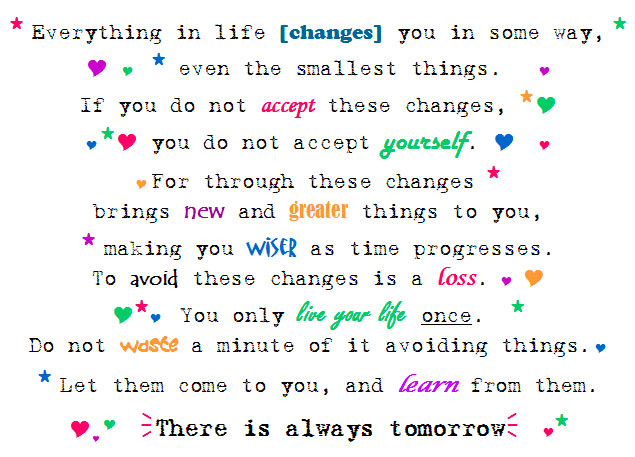







Free Signature Generator

You're
Specific Whether you're an earth mother or a PTA president (or both!), you're very concerned with setting specific expectations for your kids' behavior. You do this both by telling them what to do and acting as a role model, and, in general, you expect them to follow your careful guidance. As a parent, you think you should be very actively involved in fostering your children's growth, which includes determining what activities they should engage in – sports, tutoring, music, chores, art, yoga, whatever. When it comes to everything from family meals to manners and morals, you know what's best.

Democratic Your family's a democracy when it comes to setting rules and expectations. Above all, you're a flexible parent; you recognize that sometimes you have to adjust your standards according to circumstances. You prefer to have open discussions with your children about manners and morals and encourage them to discuss their feelings about family rules and restrictions. You'll always try to admit it to your kids when you make a mistake.
Strict No doubt about it: You're strict! In your opinion, kids need to be told what to do and how to do it. The approach you take to discipline is firm and direct. That's what's best for your kids, since being firm helps them understand who the boss is, and helps them respect and obey the important rules you establish. When your kids step out of line, you make sure there's an appropriate punishment - not that you enjoy punishing them, and you try never to be too harsh (or too lenient, for that matter). Parents who answered like you indicate that sometimes, spanking is an appropriate form of discipline.

Strict
No doubt about it: You're strict! In your opinion, kids need to be told what to do and how to do it. The approach you take to discipline is firm and direct. That's what's best for your kids, since being firm helps them understand who the boss is, and helps them respect and obey the important rules you establish. When your kids step out of line, you make sure there's an appropriate punishment - not that you enjoy punishing them, and you try never to be too harsh (or too lenient, for that matter). Parents who answered like you indicate that sometimes, spanking is an appropriate form of discipline.
 • 94% of 3- and 4-year-olds have been spanked at least once during the past year, according to one study.
• 94% of 3- and 4-year-olds have been spanked at least once during the past year, according to one study. • 74% of mothers believe spanking is acceptable for kids ages 1 to 3, says another study.
• 61% of parents condone spanking as a "regular form of punishment" for young children, according to a different study.
Clearly, the majority of parents say they spank their kids. Various factors increase the likelihood, including geographic location (children in the South are spanked the most), family income (less money means more spanking), race (African-American mothers spank their children more than other ethnic groups), and religion (parents more fundamentalist in their religious beliefs spank more than those who are less so). But all in all, it's a pretty clear picture.
Meanwhile, for decades a long and distinguished list of experts has denounced spanking as ineffective, even dangerous. Ineffective, they say, because it only teaches a child to fear his parents, not to respect them, and dangerous because using force can injure a child and warp his understanding of how to interact with others: namely, that it's okay to hit someone to get your own way. And experts warn that children who have this antisocial lesson beaten into them are more likely to exhibit violent behavior later in life.
So why is there still a massive disconnect between what experts advise and what parents do? Are so many of us clamping our hands over our ears to "hear no evil," or do we know something that experts don't?
Researchers who gather spanking statistics often lump together parents who may smack a well-padded bottom with an open hand once a year with those who regularly reach for a brush or belt strap as discipline, and they combine those who may spank their child because it's "good for them" with those who've done it because they lost their temper. The only definition experts and parents do seem to agree on is that spanking entails hitting of some kind, and that abuse is never acceptable. (Those of you who believe spanking is abuse no matter how it's defined may now be excused to write your letters to the editor.)
There are any number of reasons that a parent might advocate or abhor spanking, but most influential is her own childhood experience. Christina Togni of Manassas Park, Virginia, can still recall her mother's threat with a wooden spoon. "When my two older brothers and I would do something wrong and hear the kitchen drawer open, we'd immediately head for the hills." Now the mom of a 6-year-old and a newborn, Togni says that she uses spanking only "when absolutely necessary." But unlike her mom, she doesn't issue empty threats. "When I say I'm going to do it, I do it." Jennifer Johnson, a mother of three in Haymarket, Virginia, also remembers fearing "the wrath of the paddle," which she believes was a good thing. She says that she now spanks her kids "when the crime meets the punishment," and feels that there would be fewer unruly children if more parents spanked. Other parents say that they learned a very different lesson from their spankings. Lisa Bacote, a mom of a 2-year-old and a 3-month-old in Atlanta, remembers the few spankings she received. "They were harsh!" she says. But the punishments didn't teach responsibility or obedience, she believes, as much as fill a reservoir of resentment that took years to drain. Her husband says that the spankings he received growing up taught him two things:
• How to lie ("I didn't do it")
• How to avoid getting caught.
Interestingly, whether an adult looks back in admiration or anger for being spanked, she rarely indicts her parent for doing it. "I understand that the spankings were fueled by my mother's frustration on those days," says Bacote. I, too, was spanked as a child, and I not only understand why I was spanked but I would probably have done the same thing. Once when I was yelling and acting like a complete jerk to my mom, she hit me, and I distinctly remember thinking, "Okay, I had that coming."
But that doesn't mean it's morally defensible to hit a child when the purpose is to "teach a lesson." "Why is it okay for an adult to hit a child when it isn't even acceptable for an adult to pick on someone his own size?" asks Murray Straus, Ph.D., professor of sociology and codirector of the Family Research Laboratory at the University of New Hampshire. "There have been plenty of times when my colleagues have disagreed with me or made me upset, but that doesn't give me the right to haul off and hit 'em."
In this case, whether or not an adult "deserves" to be smacked is a moot point. It's simply unacceptable (and will land the smacker in a lot of trouble). Why is it, then, that children might "deserve" a swat and receive one? Because we're big and they're small -- a morally and ethically indefensible reason.
Still, adults who were spanked as children often defend the practice by saying, "It didn't hurt me in the long run." But, says Straus, just because a well-adjusted adult was spanked as a child doesn't mean that spanking is a harmless act. "I could say, 'I smoked my whole life and I'm okay.' But that doesn't mean smoking isn't bad for you," he explains.
Experts cite stacks of research that link spanking to mental health problems such as depression and a range of antisocial behaviors that land kids in detention and adults in jail. Of course, not all spanked kids end up in prison. Not all smokers end their days hooked up to an oxygen tank, says Straus, but that doesn't mean that it's fine for parents to introduce their children to nicotine.
Yet for many parents, their own childhood experience is hefty enough to quash any amount of data or well-reasoned line of logic. This doesn't surprise Gary Hill, a clinical psychologist at the Family Institute at Northwestern University, in Evanston, Illinois. "There's a strong emotional connection to the childhood event," he says, "so parents who spank are often more righteous about it." He also notes that for some adults, it's impossible to blame their own parents for spanking because it would mean that they were somehow scarred by being spanked. Instead, they believe that they "deserved" what they got.
click here to read more here
 1. It'll make him healthier. Sure, he's going to have the sniffles more often than a stay-at-home tyke. But the bugs he's exposed to may strengthen his immune system, which in turn may protect him from chronic conditions like allergies, asthma, and even leukemia. According to a new study from the University of California, Berkeley, kids who attend daycare are 30 percent less likely to develop the most common type of childhood leukemia. The researchers think the immune-system boost from the infections may be why.
1. It'll make him healthier. Sure, he's going to have the sniffles more often than a stay-at-home tyke. But the bugs he's exposed to may strengthen his immune system, which in turn may protect him from chronic conditions like allergies, asthma, and even leukemia. According to a new study from the University of California, Berkeley, kids who attend daycare are 30 percent less likely to develop the most common type of childhood leukemia. The researchers think the immune-system boost from the infections may be why. 2. It'll prep him for school. "Daycare centers are more stimulating and cognitively enriching than in the past," says Kathy Hirsh-Pasek, Ph.D., an investigator for a recent National Institutes of Health study that found that at age 4, kids who'd been in daycare did better on literacy and number-skills tests.
3. It'll jump-start his social life. Daycare tots learn to be more cooperative and are more assertive than kids who stay home. Because they have to get along with lots of other children, they learn they don't always come first and how to make friends. A lesson always better learned sooner rather than later in life!
Back then when I lived in Denmark I had to take my eldest child to daycare, it was necessary for me to do that coz I worked from 9 to 3pm, I never had any regrets to take her to daycare the teachers or guidance there were really nice. polites and very diplomatic. They had many activities and they assigned 3 kids per caregiver, and I always had a contact person, someone who I could talk to about my Daughters progress, like learning to play with others, sharing, eating, and taking naps when I'm not there. And I could also see my daughter being more and more talkative, and more social. I really like the way they teach children to socialize, it is really important that your kid can get along with anyone or any kind of persons, they can learn to accept each others character. I am also planning this coming june to let her go to pre-school also because she shows so much interest in it. She likes me to buy her notebooks, uniform, pencils, coloringbooks and stuff. And in my situation right where I live and work a little too far away from them, I can depend on my grandmom to teach her the basic things like shapes colors numbers and letters, for my own personal reasons. As much as i like having her at home with me where I could be her teacher, I just don't have that kind of luxury. I'm a single mom if I stayed at home who's gonna provide for us right. So here I also learn to balance and organize mine and my kids lifestyle. Well soon I'll be with them again, I', just waiting for my salary to go up and have a financial security .


It's Built to last
It's as sturdy as lightweights get, has top-notch steering, and practically opens and folds on its own.
 I remember my eldest daughter had a fleeceblanket she couldn't live without. When she was in bed or riding her stroller or even playing. she had this fleece blanket with her all the time. And she even reminds me to bring it along and everytime it was always put to use, when she fell asleep on our friends house where she had a hard time sleeping coz it's a new place well this blanket gave her sort of protection or comfort. I use it also for my second daughter she loves the feeling of it but isn't that much needy for it as her ate( big sis). This is one of my favorites too. even I started to crave for the fleece blanket hehehehe...the softness of it the smell of my baby, it really does comfort you hehehe.
I remember my eldest daughter had a fleeceblanket she couldn't live without. When she was in bed or riding her stroller or even playing. she had this fleece blanket with her all the time. And she even reminds me to bring it along and everytime it was always put to use, when she fell asleep on our friends house where she had a hard time sleeping coz it's a new place well this blanket gave her sort of protection or comfort. I use it also for my second daughter she loves the feeling of it but isn't that much needy for it as her ate( big sis). This is one of my favorites too. even I started to crave for the fleece blanket hehehehe...the softness of it the smell of my baby, it really does comfort you hehehe. perfect in design, perfect for your child, perfect so perfect. This is my second daughters favorite bottle, i ended up buying like 10 of these bottles I love it.
perfect in design, perfect for your child, perfect so perfect. This is my second daughters favorite bottle, i ended up buying like 10 of these bottles I love it.

Designed to provide the correct ergonomic support for your child when seated, TRIPP TRAPP® enables your child to sit at the family table and interact with you and other family members.
The unique adjustability of TRIPP TRAPP® in both seat and footrest height and depth adapts to your child as they grow to ensure that your child sits comfortably at all times.
oh see it's the best hehehehe
nr 8.
 babybjørn carrier, the most comfortable carrier ever. very useful.
babybjørn carrier, the most comfortable carrier ever. very useful. fisher prize winnie the pooh activity blanket
fisher prize winnie the pooh activity blanket

 When your 3-year old's tantrums are driving you crazy
When your 3-year old's tantrums are driving you crazy  |
It may seem like your child's having a meltdown for no reason (or for a silly one). But there are real causes:
Toddlers can't express themselves very well. Your 2- or 3-year-old may know a lot of words, but he doesn't yet have the ability to construct complex sentences -- or put words to all the emotions he's feeling. That's why instead of saying, "Mom, I'd really like orange juice with my toast, but only in the red cup because it looks weird in the blue one," he screams bloody murder when you gave him apple juice in the blue cup.
They are easily overwhelmed. Toddlers thrive on routine, and a change can really throw them off. That means that adding in an extra errand or missing naptime by even 15 minutes can spell disaster. Certain places, like busy stores, can be overwhelming, too.
They want to do more than they can handle. Toddlers are naturally very curious -- and are thrilled to discover they can suddenly do so many things on their own. Unfortunately, your child's physical prowess doesn't keep pace with his curiosity, so he gets frustrated when the block tower falls or he's not allowed to climb the kitchen stool.
They don't understand delayed gratification. Little kids live in the here and now, not in our cookies-are-for-after-dinner world. Not getting what they want, when they want it, is a top tantrum producer.
Acknowledge that she's frustrated. Your best first defense is to look your child in the eye and let her know you feel her pain. By saying "I know you want a cookie," or even just "I know you're upset," you're telling her you're there to help her feel better. That might be enough to calm her down so you can add, "I wish we could have cookies, too. It's too bad we can't right now."
Be silly. Laughter can be a great tantrum buster. If your child starts to pitch a fit about getting into the tub, try singing a goofy song -- anything to make her giggle.
Try a distraction. Give her something else to think about. Try saying, "Let's finish shopping by picking out bananas together." Or if it's time to leave the park, but she doesn't want to, "How many dogs do you think we'll see on the drive home?"
Ignore it. Sometimes, tantrums escalate because your toddler thinks she'll get what she wants if she screams loud enough. If you don't react, she may give up.
Leave the scene. When all else fails, get out of line, off the slide, whatever. But do it without making a fuss -- you'll be modeling calm behavior. It may be inconvenient, but it shows who's in control: you.
Avoid the triggers. Try to figure out what sets your child off. Does he lose it when he's hungry or tired? When he's in the car seat for longer than 20 minutes? Plan ahead to stave off tantrums: Carry a snack, make sure he's rested, or stop for a break between errands.

Offer options. When toddlers feel overwhelmed, they need your help, but they still want to have a say in things. That's why offering two options (more is just confusing) can prevent a meltdown. Try saying, "Would you like to see the polar bears or the monkeys?" instead of "Which animal do you want to see first at the zoo?"
Give fair warning. If you have to tear your child away from something fun or drag him somewhere he'll hate, preparation can nip frustration in the bud. Say, "We're going to go home after one more trip down the slide." Little kids are more likely to behave if they know ahead of time what they can and can't do.
Show your child how you want him to act. Since one reason kids scream is that they don't know what else to do, teach your child to use words to express himself. Good ones to start with: "Can you help me?" and "Excuse me." The more specific you can be with your own requests, the better. Telling your child you want him to "be good" isn't really informative. Instead, tell him you want him to ask for things in a quiet voice.
Toddlers have tantrums because they're frustrated or overwhelmed, not because they want to make you crazy. Understanding the underlying cause can help you both get through a tantrum.






 Closing your thighs will stimulate your clitoris, resulting in an intense orgasm. But major friction can chafe dry skin, so make sure you’re fully aroused. As far as he’s concerned, the wetter the better, so moisten youself with lube for a truly slippery seduction.
Closing your thighs will stimulate your clitoris, resulting in an intense orgasm. But major friction can chafe dry skin, so make sure you’re fully aroused. As far as he’s concerned, the wetter the better, so moisten youself with lube for a truly slippery seduction.









